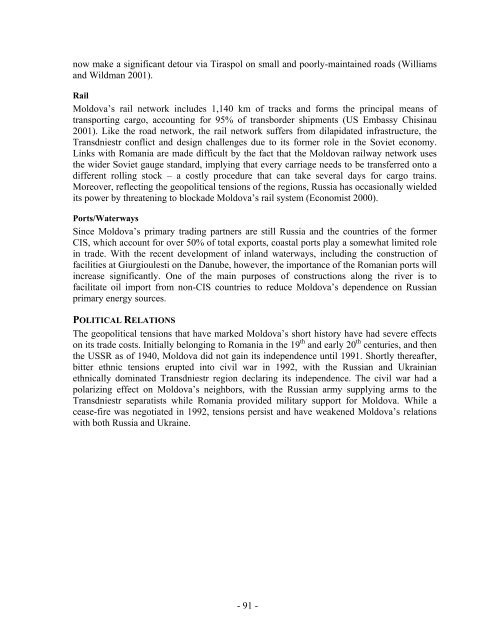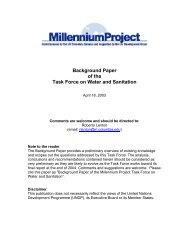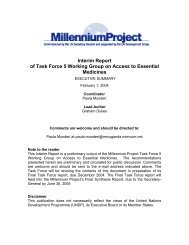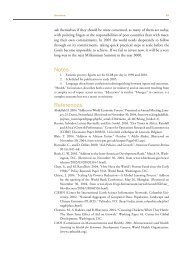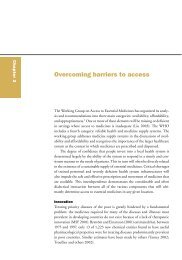the challenges facing landlocked developing countries: a case study ...
the challenges facing landlocked developing countries: a case study ...
the challenges facing landlocked developing countries: a case study ...
Create successful ePaper yourself
Turn your PDF publications into a flip-book with our unique Google optimized e-Paper software.
now make a significant detour via Tiraspol on small and poorly-maintained roads (Williams<br />
and Wildman 2001).<br />
Rail<br />
Moldova’s rail network includes 1,140 km of tracks and forms <strong>the</strong> principal means of<br />
transporting cargo, accounting for 95% of transborder shipments (US Embassy Chisinau<br />
2001). Like <strong>the</strong> road network, <strong>the</strong> rail network suffers from dilapidated infrastructure, <strong>the</strong><br />
Transdniestr conflict and design <strong>challenges</strong> due to its former role in <strong>the</strong> Soviet economy.<br />
Links with Romania are made difficult by <strong>the</strong> fact that <strong>the</strong> Moldovan railway network uses<br />
<strong>the</strong> wider Soviet gauge standard, implying that every carriage needs to be transferred onto a<br />
different rolling stock – a costly procedure that can take several days for cargo trains.<br />
Moreover, reflecting <strong>the</strong> geopolitical tensions of <strong>the</strong> regions, Russia has occasionally wielded<br />
its power by threatening to blockade Moldova’s rail system (Economist 2000).<br />
Ports/Waterways<br />
Since Moldova’s primary trading partners are still Russia and <strong>the</strong> <strong>countries</strong> of <strong>the</strong> former<br />
CIS, which account for over 50% of total exports, coastal ports play a somewhat limited role<br />
in trade. With <strong>the</strong> recent development of inland waterways, including <strong>the</strong> construction of<br />
facilities at Giurgioulesti on <strong>the</strong> Danube, however, <strong>the</strong> importance of <strong>the</strong> Romanian ports will<br />
increase significantly. One of <strong>the</strong> main purposes of constructions along <strong>the</strong> river is to<br />
facilitate oil import from non-CIS <strong>countries</strong> to reduce Moldova’s dependence on Russian<br />
primary energy sources.<br />
POLITICAL RELATIONS<br />
The geopolitical tensions that have marked Moldova’s short history have had severe effects<br />
on its trade costs. Initially belonging to Romania in <strong>the</strong> 19 th and early 20 th centuries, and <strong>the</strong>n<br />
<strong>the</strong> USSR as of 1940, Moldova did not gain its independence until 1991. Shortly <strong>the</strong>reafter,<br />
bitter ethnic tensions erupted into civil war in 1992, with <strong>the</strong> Russian and Ukrainian<br />
ethnically dominated Transdniestr region declaring its independence. The civil war had a<br />
polarizing effect on Moldova’s neighbors, with <strong>the</strong> Russian army supplying arms to <strong>the</strong><br />
Transdniestr separatists while Romania provided military support for Moldova. While a<br />
cease-fire was negotiated in 1992, tensions persist and have weakened Moldova’s relations<br />
with both Russia and Ukraine.<br />
- 91 -


